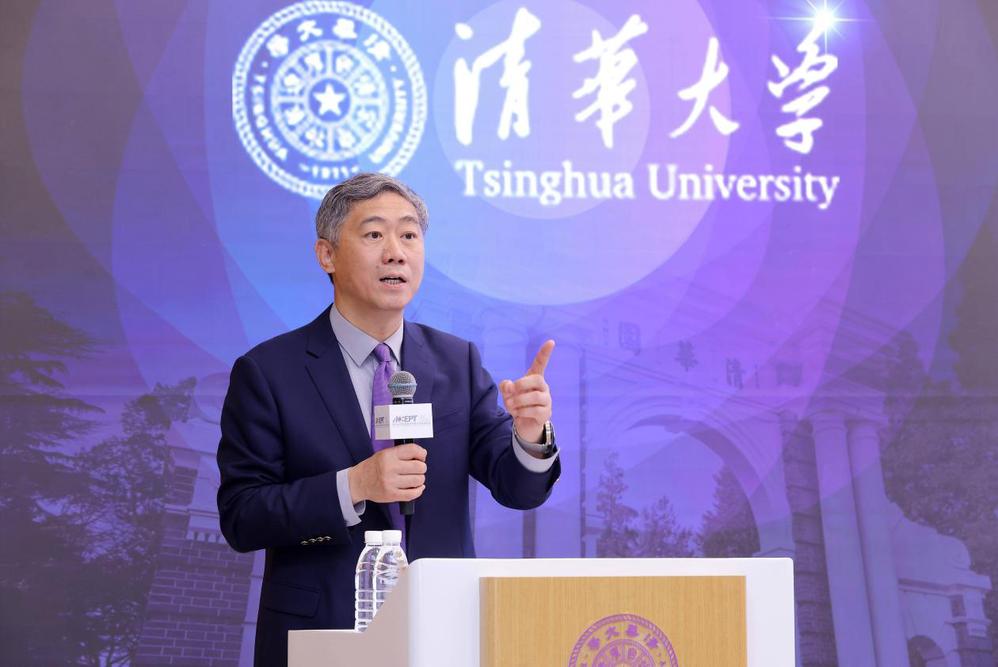David Daokui Li: Economic policymaking must move beyond traditional fiscal administration to incorporate modern public finance
The following is a summary of David Daokui Li's address to attendees and comments during a roundtable discussion at the 49th Tsinghua University Forum on China and the World Economy held at Tsinghua University, Beijing, and broadcasted online on July 2, 2025. Li is Director of Tsinghua University's Academic Center for Chinese Economic Practice and Thinking (ACCEPT), Co-President of the Society for the Analysis of Government and Economics (SAGE) and Professor at Tsinghua University's School of Economics and Management.
On July 2, 2025, the 49th Tsinghua University Forum of China and the World Economy, organized by the Academic Center for Chinese Economic Practice and Thinking (ACCEPT) at Tsinghua University, was broadcast online. The event’s theme was entitled “China’s 2025 Mid-Year Economic Update.” Guests in attendance at the biannual forum included Hua Changchun, Chief Economist for Greater China at Kohlberg Kravis Roberts & Co. Inc. (KKR); Jin Canrong, Associate Dean and Professor of the School of International Studies at Renmin University of China; Lu Zhengwei, Chief Economist of China Industrial Bank; Qiu Baoxing, Academician of the China Science Center of the International Eurasian Academy of Sciences and former Vice Minister of the Ministry of Housing and Urban-Rural Development of the People's Republic of China; Zhu Baoliang, former Chief Economist and Researcher of the State Information Center's Department of Economic Forecasting; David Daokui Li, Director of Tsinghua University's ACCEPT, Co-President of the Society for the Analysis of Government and Economics (SAGE) and Professor at Tsinghua University's School of Economics and Management; and Liu Peilin, Chief Researcher at Tsinghua University's ACCEPT. The Deputy Executive Director of ACCEPT, Li Ke'aobo, presided over the forum's proceedings.
During the forum, ACCEPT released its China Macroeconomic Analysis and Forecast Report for the second half of the year, with the director of the research institute, David Daokui Li, further relaying three observations based on the report’s findings.

First, the current state of the economy remains relatively dire. With GDP growth sliding down towards a lower level, scholars are now in agreement that the top priority should be to ratchet back up the growth rate. “As for nominal GDP, this is the indicator of economic growth that people feel must be reversed, otherwise everything else is just pie in the sky,” he said.
Second, it is necessary to move beyond traditional fiscal administration to incorporate modern public finance, with one of the foremost requirements for a country's public finances being the availability of marketable products in its financial markets. Li pointed out that financial markets stand in need of those assets that can provide the greatest stability, safety and liquidity. “First of all, this does not include stocks; and secondly, it does not refer to cash, since there is no return for holding cash, as the rate of return is very low, while the liquidity for cash is limited as it cannot be immediately withdrawn from the banks. Small and medium-sized banks are also particularly at risk of insolvency and restructuring, so while physical cash left at home may be lost, money could be deposited into a banking institution that fails. Thus, the safest and most liquid financial product available in modern finance is sovereign bonds, which can be traded 24 hours a day,” he explained.
In addition, the state has a wide-ranging role to play from a financial point of view, borrowing money today to invest for the next 20, 30, 40 and 100 years, investing in high-speed rail, airports and other facilities in various cities that will continue to serve citizens over the long haul. He suggested that when it comes to the issuance of ultra-long-term central government bonds, being obligated to repay bonds of a shorter-term maturation leads to mismatches, so the state should make use of financial instruments to better manage the country's accounts and its longer-term investments, including the investments poured into infrastructure.
Third, China’s financial markets are now poised to take off, with its A-share market having performed moderately well in the first half of the year. He further argued that if 4 trillion yuan was injected into the real estate sector and deployed to purchase half of the excess inventory, and with these units then made available to urbanized rural residents as affordable housing in the future, the real estate market would be propelled forward with renewed vitality. “Four trillion accounts for 3% of GDP, while the level of national debt ought to be raised to more than 100%. Our savings rate is 40%, one of the highest in the world, while the savings rate in the US is 16% and its national debt level has reached 120%. Japan's savings rate is lower than ours, at roughly 30%, while its national debt level is 220%,” he remarked.
“And so, if we unleash our imagination, once piercing through the thin veil obscuring our view, this vision can reach new heights and all our troubles will be able to be readily resolved,” Li asserted. “On the whole, there is reason to be very optimistic. I invite you to pay attention to the real estate and financial markets, as indications of this round of adjustment will appear starting in the real estate and financial markets, so please pay attention to it.”




